The following from ‘a reader’, via e-mail to vreaa 29 Dec 2012, who writes: “The following is from a CFA level 3 Behavioral Finance textbook that a friend of mine found at a garage sale. Not too many people have access to the book so it might be of some interest. Nothing really too new, but it’s the only time I’ve seen bubbles and crashes written about in a textbook, they are not discussed in university level textbooks as far as I have seen. Provides a lot of insight into the biases that come into play with bubbles and the summary discusses how the crash unfolds. I sounds to me like we are at the early stages of such a crash.”
—
Bubbles and Crashes
Stock market bubbles and crashes present a challenge to the concept of market efficiency. Periods of significant overvaluation or undervaluation can persist for more than one year, rather than rapidly correcting to fair value. The efficient market hypothesis implies the absence of such bubbles. The frequent emergence of bubbles in history was documented in Extraordinary Popular Delusions and the Madness of Crowds (Mackay 1841). The book captures the concept of extremes of sentiment and apparent mass irrationality. Bubbles and crashes appear to be panics of buying and selling. A continuous rise in an asset price is fuelled by investors’ expectations of further increase; asset prices become decoupled from economic fundamentals.
A more objective modern definition specifies periods when a price index for an asset class trades more than two standard deviations outside its historic trend. Statistically, if returns are normally distributed, such periods should not represent more than 5 percent of total observations. However, for some stock markets and asset classes, these extremes of valuation account for more than 10 percent.
Bubbles and crashes are, respectively, periods of unusual positive or negative asset returns because of prices varying considerably from or reverting to their intrinsic value. Typically, during these periods, price changes are the main component of returns. Bubbles typically develop more slowly relative to crashes, which can be rapid. This asymmetry points to a difference in the behavioral factors involved. A crash would typically be a fall of 30 percent or more in asset prices in a period of several months. Some bubbles and crashes will reflect rapid changes in economic prospects that investors failed to anticipate. The global oil price shock of the 1970s and the Japanese asset price bubbles of the late 1980s, in which real estate and stock prices rose dramatically, would be examples. Initially in a bubble, some participants may view the trading and prices as a rational response – for example, to easy monetary conditions or a liquidity squeeze – but this view is typically followed by doubts about whether prices reflect fundamental values.
These bubbles have been observed in most decades and in a wide range of asset classes. Recent examples are the technology bubble of 1999-2000 and the residential property boom of 2005-2007, evident in a range of economies globally including the United States, the United Kingdom, and Australia. They appear to be periods of collective irrationality, but can be analyzed in more detail as representing some specific behavioral characteristics of individuals. Behavioral finance does not yet provide a full explanation for such market behavior, but a number of specific cognitive biases and emotional biases prevalent during such periods can be identified.
First, it should be noted that there can also be rational explanations for some bubbles. Rational investors may expect a future crash but not know its exact timing. For periods of time, there may not be effective arbitrage because of the cost of selling short, unwillingness of investors to bear extended losses, or simply unavailability of suitable instruments. These were considerations in the technology and real estate bubbles. Investment managers incentivized on, or accountable for, short-term performance may even rationalize their participation in the bubble in terms of commercial or career risk.
The extent to which investors may rationalize their behavior during bubbles is evident in Exhibit 12 [Investor Behavior in Bubbles]. Both managers appear to have misunderstood risks and exhibited the illusion of control bias. The manager of Fund A believed he could exit a bubble profitably by selling near the top. The manager of Fund B may not have recognized the potential scale of a bubble, or client perspectives on a period of relative underperformance while not participating in the bubble.
Consider the differing behavior of two managers of major hedge funds during the technology stock bubble of 1998-2000:
The manager of Hedge Fund A was asked why he did not get out of internet stocks earlier even though he knew by December 1999 that technology stocks were overvalued. “We thought it was the eighth inning, and it was the ninth. I did not think the NASDAQ composite would go down 33 percent in 15 days.” Faced with losses, and despite a previous strong 12-year record, he resigned as Hedge Fund A’s manager in April 2000.
The manager of Hedge Fund B refused to invest in technology stocks in 1998 and 1999 because he thought they were overvalued. After strong performance over 17 years, Hedge Fund B was dissolved in 2000 because its returns could not keep up with the returns generated by technology stocks.
In bubbles, investors often exhibit symptoms of overconfidence, overtrading, underestimation of risks, failure to diversify, and rejection of contradictory information. With overconfidence, investors are more active and trading volume increases, thus lowering their expected profits. For overconfident investors (active traders), studies have shown that returns are less than returns to either less active traders or the market while risk is higher (Barber and Odean 2000). At the market level, volatility also often increases in a market with overconfident traders.
The overconfidence and excessive trading that contribute to a bubble are linked to confirmation bias and self-attribution bias. In a rising market, sales of stocks from a portfolio will typically be profitable, even if winners are being sold too soon. Investors can have faulty learning models that bias their understanding of this profit to take personal credit for success. This behavior is also related to hindsight bias, in which individuals can reconstruct prior beliefs and deceive themselves that they are correct more often that they truly are. This bias creates the feeling of “I knew it all along.” Selling for a gain appears to validate a good decision in an original purchase and may confer a sense of pride in locking in the profit. This generates overconfidence that can lead to poor decisions. Regret aversion can also encourage investors to participate in a bubble, believing they are “missing out” on profit opportunities as stocks continue to appreciate.
Overconfidence involves an illusion of knowledge. Investors would be better off not trading on all the available information, which includes noise or non-relevant information. Asset prices provide a mix of information, both facts and the mood of the crowd. But in a stock market bubble, noise trading increases and overall trading volumes are high. Noise trading is buying and selling activity conduceted in the absence of meaningful new information, and is often based on the flow of irrelevant information. A manager increasing trading activity in a rising stock market can misinterpret the profitability of activity, believing it is trading skill rather than market direction delivering profits.
The disposition effect recognizes that investors are more willing to sell winners, which can encourage excess trading. There can also be a confirmation bias to select news that supports an existing decision or investment. Indeed, search processes may focus almost exclusively on finding additional confirmatory information. Investors may be uncomfortable with contradictory information and reject it. Investors can also have a bias to buy stocks that attract their attention, and pay more attention to the market when it is rising. For short-term traders who may derive entertainment from the market, monitoring rising stock prices is more entertaining and instills more pride. Entertainment and pride are emotional effects.
As a bubble unwinds, there can be under-reaction that can be caused by anchoring when investors do not update their beliefs sufficiently. The early stages of unwinding a bubble can involve investors in cognitive dissonance, ignoring losses, and attempting to rationalize flawed decisions. As a bubble unwinds, investors may initially be unwilling to accept losses. In crashes, the disposition effect encourages investors to hold on to losers and postpone regret. This response can initially cause an under-reaction to bad news, but a later capitulation and acceleration of share price decline. This situation will only apply to stocks already held by investors, with hedge funds that can sell stock short being more inclined to react first to bad news in a downturn. In crashes, there may be belief that short sellers know more and have superior information or analysis.
—




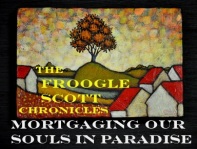











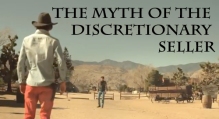










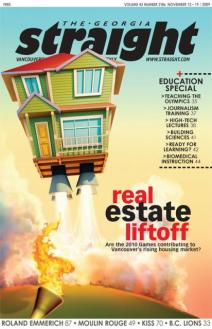



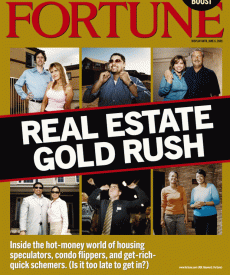
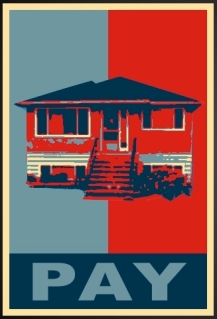
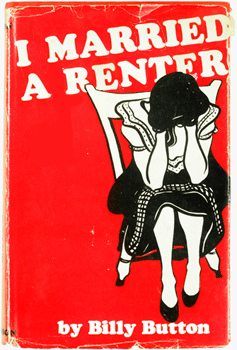
Does anyone now seriously doubt that the development and trajectory of the bubble were well understood even before their onset and that as our own progressed and was actively fed by the fuel of more easy credit from our banks that the outcome was already preordained and even accounted for?
I mean to say it was no accident.
“it was no accident.”
Very disturbing. Especially when you think about how this will all unwind and who ends up winning.
Privatized healthcare!
Austerity!
Right to work legislation!
Loyal cadres, behold the shock doctrine and the great demoralization of a declining society!
The glorious party will bail you out, just give us your resources and receive our labourers with a smile and tacit approval of sub standard pay and conditions!
But nobody wins…
That is the most puzzling part of all, isn’t it Cyril? As we saw in the US, even the banks were losers. Hundreds were wiped out, many more bailed out and others put under the watch of trustees. Everyone was a loser actually including the economy at large, the taxpayer, the homeowner and even the renter.
In our own case though most of the punishment will be meted out via the public purse which means that even those who did not participate in the euphoria will pay a price through taxation.
It will not be cheap either. Isn’t that comforting?
I wish someone would send me a memo when a bubble is forming, then another shortly before its peak so I can get rich without much effort.
It’s easy to spot a bubble.
Just ask your barber for financial advise, then do the opposite.
Never follow those who can manipulate the market, i.e. Warren Buffet.
Actually we did, Foremski. But few who stood to benefit were listening so the message fell on deaf ears. Keep posted and we will tell you when the bottom is in.
“Consider the differing behavior of two managers of major hedge funds during the technology stock bubble of 1998-2000:
The manager of Hedge Fund A was asked why he did not get out of internet stocks earlier even though he knew by December 1999 that technology stocks were overvalued. “We thought it was the eighth inning, and it was the ninth. I did not think the NASDAQ composite would go down 33 percent in 15 days.” Faced with losses, and despite a previous strong 12-year record, he resigned as Hedge Fund A’s manager in April 2000.
The manager of Hedge Fund B refused to invest in technology stocks in 1998 and 1999 because he thought they were overvalued. After strong performance over 17 years, Hedge Fund B was dissolved in 2000 because its returns could not keep up with the returns generated by technology stocks.”
Even if you know a bubble is forming it is not so easy to make money. the vast majority who participate in the bubble will lose when it crashes.
“Regret aversion can also encourage investors to participate in a bubble, believing they are “missing out” on profit opportunities”
I think a lot of people in Vancouver who maybe had a gut feeling that something was not quite right in this market still participated due to regret aversion.
Well that is a good point Groundhog. On the other hand there were literally dozens coming just to this one site who reasonably accurately called the top (I am suggesting it is in, of course). Our own Vreaa was one of those who noted the peak as it was happening so I know it is possible to read the tea leaves accurately. Perhaps the difference is that others are just bigger risk takers and try to time within weeks or days which is folly in real estate. Catching the top within a few months is prtetty damn good in my books. I commend those who did so against all the shrill voices trying to shout them down day in and day out. The bleating was loudest just before the fall began.
As long a we measure progress and success in monetary term, there will always be bubbles, be it in RE, stock markets or tulips.
Disharmony!
Blasphemy!
Hersey!
40 years in the Nike factory for you!
Reading the text and substituting Van RE and people you know who bought for all the examples yields a definitive conclusion. This is a textbook bubble. Every single box is checked – nothing appears different in any of the price movements or psychological mechanisms. Even the early stages of the descent that we are now seeing, with people pulling their listings to wait until spring, mirror exactly what was written above.
“As a bubble unwinds, there can be under-reaction that can be caused by anchoring when investors do not update their beliefs sufficiently. The early stages of unwinding a bubble can involve investors in cognitive dissonance, ignoring losses, and attempting to rationalize flawed decisions. As a bubble unwinds, investors may initially be unwilling to accept losses. In crashes, the disposition effect encourages investors to hold on to losers and postpone regret. This response can initially cause an under-reaction to bad news, but a later capitulation and acceleration of share price decline.”
Man I feel sorry for the sheep. My in-laws just fucked their lives over sooo badly, and they don’t even know it yet.
“There can also be a confirmation bias to select news that supports an existing decision or investment. Indeed, search processes may focus almost exclusively on finding additional confirmatory information. Investors may be uncomfortable with contradictory information and reject it.”
Boy, did they ever feel uncomfortable with the information I gave them. Anger, overreaction, almost tears, asinine rationalizations for why it was wrong. Summarily rejected. They felt they were entitled to their piece of the sunshine party, and no pessimistic brother-in-law was ever going to take that away from them.
On the whole… I’ve always thought that it would be easier to make a compelling argument for the existence of SantaClaus and/or the Easter Bunny than for ‘rational actors’ and/or ‘efficient markets’ [orthodox economics’ two greatest fallacies]…
For those interested in the various strands of heterodox economics/methodologies – it’s all right here…
http://en.wikipedia.org/wiki/Heterodox_economics#Fields_or_schools_of_heterodox_economics
Well, Nem, I’ve got news for you.
Santa Claus does exist. I saw him at a mall a few days ago.
And there are a lot of rabbits here in Ditchmond. I have yet to come up with conclusive proof that they turn into Easter bunnies in Spring.:)
Our good friend Lynn from Vancouver flew to Montreal to visit family at Christmas. My wife and I dropped in to catch up. A little about Lynn: She’s just under fifty, and is a single mom with a 20-something son who has just moved out on his own. She has worked for the BC government for 15 plus years in a relatively low level job and will be finishing up a Psych degree in April. Full time job and 3 classes in the evening over several years- she’s no slouch.
Lynn has owned her modest condo in Surrey for 16 years. She casually mentioned that she had just finished paying off the mortgage, though the twinkle in her eyes betrayed her pride. After high fives all round, she told us about her visit to the bank after her last payment. “Well they wouldn’t let me pay the last $28 with my regular payment unless I payed an early repayment penalty! So, the next month after the $28 payment went through, I walked into bank to settle the mortgage. I wasn’t sure what I needed to do. The thing is, neither did they! The fellow I dealt with had opened hundreds of mortgages, but he hadn’t actually closed one.
It took a couple of phone calls and the help of his supervisor to figure it out.
But they had all the forms ready for a line of credit.”
Great story, thanks; will headline, naturally. Amazing.
Reminds us of the story of a friend, a contrarian investor (not a perennial gold bug), who wanted to buy gold at the very bottom of the gold market (1999-2000) because it was so out of favour.. he called his ‘big five’ brokerage to ask about gold investment vehicles, and nobody there could give him the name of even one gold stock. They passed the phone around, but nothing.
Oh man, Bernie…that is a great story. I do not doubt its authenticity for a moment either. Our thinking is so entrenched in living under the shadow of debt that most simply roll from one contract to the next without ever seriously entertaining the idea of bringing about a conclusion. That being one of living debt free and actually putting their unencumbered disposable income into savings.
Is it any wonder most have little or nothing stored up in the bank when we all live and die by the mantra that leverage is the path to a golden paradise?
That is what this is all about, is it not? It is not just that most don’t have the money to simply go out and purchase what they want on a whim. We care not for financial sacrifices or delayed gratification. One of the central beliefs of our society is that we can eaily lever into huge assets with only small initial investments.
You know…like the big players do.
Leverage is the path to either great riches or Brokesville. Some people think that it’s a risk worth taking and they undertake it with open eyes.
Exactly Robert. Which is why so many of us here were sounding the alarms when leverage risk was approaching its peak. For some crazy reason very few people seem to understand that leverage is a sword that can cut in both directions.
This one will take off a lot of heads before it is finished.
Great piece, thanks VREAA.
Farmer… are you still unable to access my site?
Nope, no access. Actually even more of the sites I visit have disappeared. Those damn Chinese are in clamp-down mode. Something is up when they go hogwild blocking sites.
Ignorance is bliss though (isn’t it)?
PS: I am getting pretty bullish on Silver again. The Gold/Silver ratio that I had been ignoring is too much to pass up especially as China is again warming up its afterburners and preparing for a little more stimulation. Gold miners definately have a strong appeal now too. So I have been getting my list ready but just holding off a bit as I have a hunch we might yet see a market correction that could (gasp! send prices even lower if ever so briefly!!!
The business cycle, i.e boom and bust, is the main theme of the mostly ignored but seminal economist Minsky. Bubbles and crashes are merely a subset of boom/bust.
I can assure you, RD – that many a humble acolyte with ‘eyes to see’ toiling away in the undergraduate ‘temples’ of orthodox economics’ HighPriests has spent more time reverently devoted to UncleHyman et al than hymens proper [Knaves!]…
“A fundamental characteristic of our economy [Minsky: 1974] is that the financial system swings between robustness and fragility and these swings are an integral part of the process that generates business cycles.”[7]
Of course, Minsky was essentially paraphrasing one of UncleKarl’s earlier analytic tenets; encapsulated within “DasKapital”- CrisisTheory, if you prefer… These days, we have a more nuanced (if no more useful, in the predictive sense] appreciation of the literal “chaos” inherent in Fragility/Crises…
http://en.wikipedia.org/wiki/Crisis_theory
[NoteToEd: Ah yes – http://en.wikipedia.org/wiki/Knightian_uncertainty – how it once vexed me… Actually, ED – I was far more interested in something called “strategic uncertainty”. But – now that I no longer require academic distractions to quell the DayJob’s disappointments – I just focus on the really important stuff. Ontology, Epistemology… ValveClearances… cigars… Bordeaux. Never mind, thanks in no small part to the convivial BonHomie of the eponymous community sometimes known as “VREAA” – I think we can safely say that many who would otherwise have been ‘toasted’… Weren’t. Even better, we laughed along the way.]…
This video from BNN was sent to me recently by a friend. Point of interest in the video is at the 4:15 mark. My friend was shocked by his prediction. I noted that his estimate is a bit conservative. Silence filled the room…….
http://watch.bnn.ca/#clip834490
Interesting, thanks.
For those who don’t watch the video, the analyst predicts “20 to 30%” price drops in Vancouver, “perhaps as much as 40%”.
—
Note that more and more individuals are talking publicly about the possibility of large price drops.
“The overconfidence and excessive trading that contribute to a bubble are linked to confirmation bias and self-attribution bias. ”
Great article vreaa, I think this quote in comparison to the stock market really hits home for my thinking on why we got where we are and that the bubble has finally popped and we are close to seeing some serious price deflation.
I know many of the pumpers and agents say with venom that the stock market is not a fair comparison but it is. It’s a market with buyers and sellers that turned into a very volatile market due to massive active trading of houses just like stocks. Houses come in many sizes and shapes just like stocks come in different sectors and market caps. This treatment of houses like trading vehicles is the number one reason to me why this market is about to tank hard, you just can’t treat hundreds of thousands of dollars like it’s chicken scratch. But in the end we have to realize that most people aren’t very bright when it comes to make emotional decisions and are easily led astray by group think.
Agreed.
Yes, the stock market can be compared to housing if you imagine the exchange is a nest of angry hornets compared to housing which is more like a gigantic herd of migrating elephants.
hahaha
I like those metaphors.
Similarities and differences.
Elephants is too generous a comparison. Housing is more like blind dumb cows stupidly grazing away chewing their cud in the pasture. They arent sure why they are there. But they are certain of their importance. Until a loud noise or an actual predator shows up. Then they will run blindly and stupidly in whatever direction everyone else is. Either int o the danger or over the cliff. Either way still feeling a smug sense of entitlement and superiority.